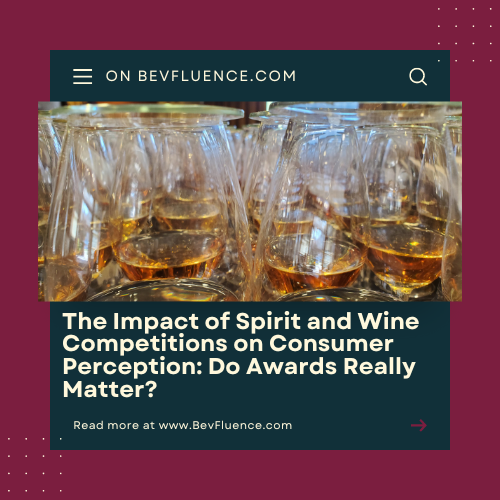As wine, cider, beer, and spirits enthusiasts, our team has always been intrigued by the world of competitions. Having worked as stewards, judges, and organizers, we understand how and why competitions work or, in some cases, do not. Many different types of competitions exist for wine and spirits, each with its own set of rules, judges, and criteria. Some competitions are highly regarded in the industry, and winning a medal or award can be a significant achievement for a brand. But do these awards matter to consumers? BevFluence® explores the impact of spirit and wine competitions on consumer perception and whether or not winning awards translates to increased sales.
Introduction to Spirit and Wine Competitions
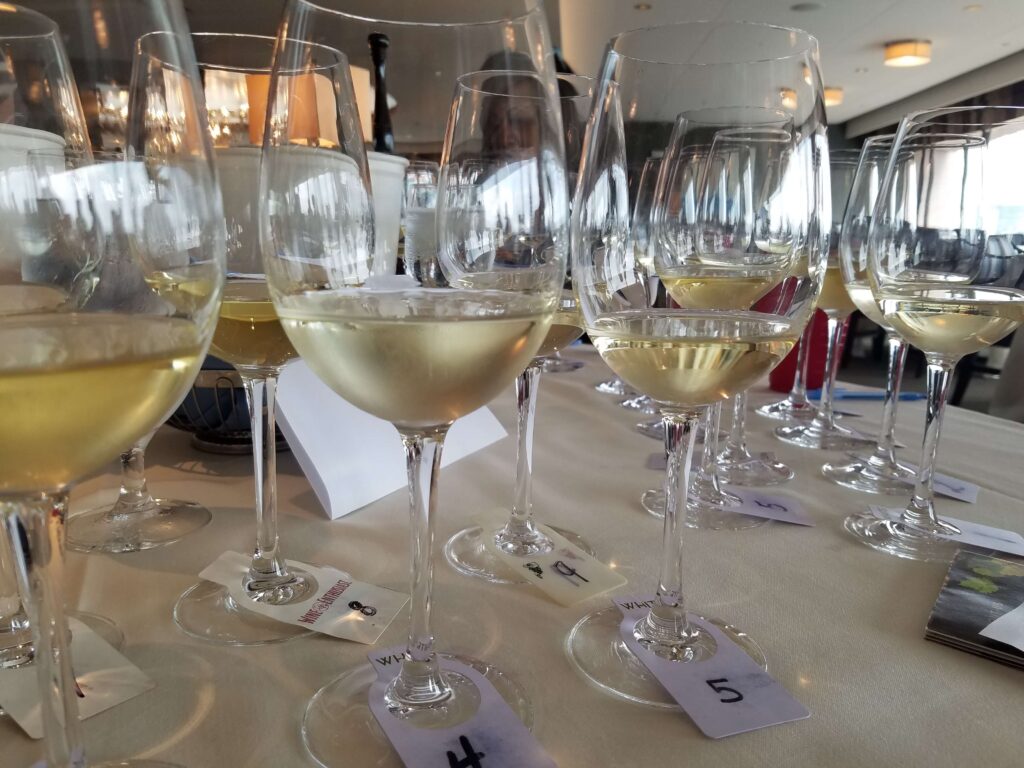
Spirit and wine competitions have been around for centuries but have become increasingly popular, recently swelling to hundreds yearly. Who has the best sake, cider, or maple blueberry moonshine made from Midwest corn? These competitions are typically organized by industry associations, publishers, or trade shows designed to evaluate and recognize the best products in various categories. Competitions vary in size and scope, but most involve blind tastings by a panel of judges who evaluate the products based on aroma, flavor, and overall quality so that a brand may be in front of world-class tasters for only 5 minutes.
The Significance of Winning Medals and Awards
There are too many competitions with different categories, prices, value propositions, and methodologies to cover here. Instead, BevFluence® takes you into the minds of brands, consumers, and industry experts. Todd Buckley, a craft spirits expert, encourages clients to “enter at least three” competitions because they are inexpensive marketing.
Winning a medal or award in a wine or spirits competition can be a significant achievement for a brand. It can help differentiate a product from its competitors and provide approval from industry experts. Winning an award can also be a valuable marketing tool, attracting new customers and building a brand reputation. For smaller brands, winning an award can be a game-changer, as it can provide exposure and credibility that is difficult to achieve through other means.
The Impact of Awards on Consumer Perception
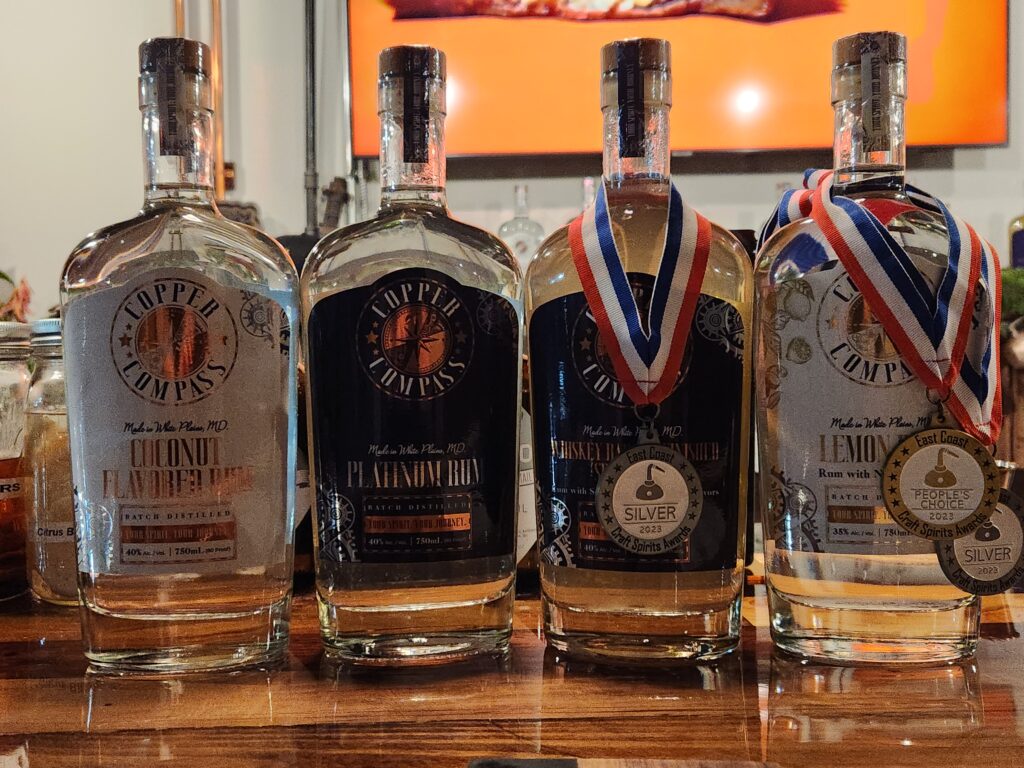
While winning an award can be a significant achievement for a brand, the impact of awards on consumer perception needs to be clarified. Some studies have suggested that awards and medals influence consumer purchasing decisions, as they provide a sense of quality and legitimacy to a product. However, other studies have shown that consumers may need to be aware of or pay more attention to awards and medals when purchasing. A survey by the Wine Market Council found that only 4% of consumers consider wine competition medals when making a purchase. It is important to note that the impact of awards on consumer perception may vary depending on the type of consumer. Wine and spirits enthusiasts may be more likely to pay attention to awards and medals, while casual consumers may be less influenced, which only sometimes translates into sales. Readers of publications may purchase a bottle they see featured in a magazine, but brands and consumers often see the perception of those competitions as nearly pay-to-play.
How Competitions and Awards Influence Purchasing Decisions
Despite the mixed evidence on the impact of awards on consumer perception, competitions and awards have the potential to influence purchasing decisions.
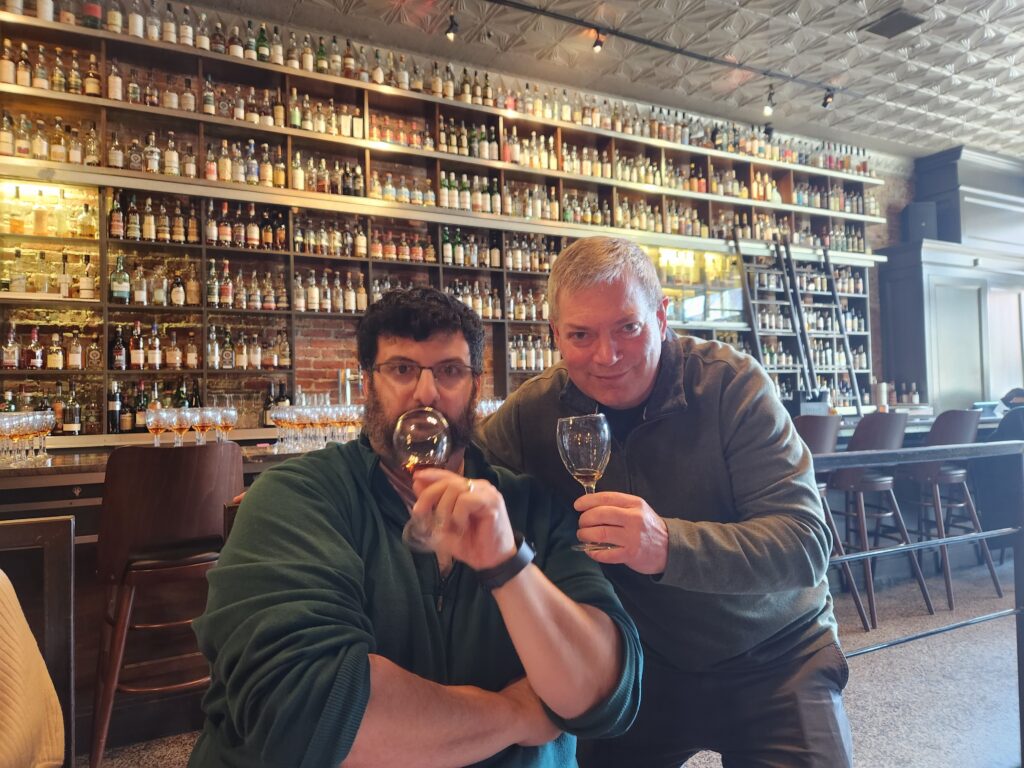
Brands that win awards may see increased sales, particularly in the short term. Winning an award can also provide a competitive advantage, as it can help a brand to stand out in a crowded market. When we asked a whiskey group if medals help you make a decision, 70% said no, or they did not pay attention. As a buyer for years, our CEO Justin Koury ignored medals (especially neckers with scores on them) like the plague. Some buyers at retail chains will only touch a product with high scores or medals, but that is rare. The end-user (the consumer) often ignores the medals or tasting notes provided in favor of other purchasing reasons. These reasons will be discussed in future articles.
However, the impact of awards on purchasing decisions may be limited by other factors such as price and availability. Consumers may be willing to pay more for a product that has won an award, but only if the price is reasonable and the product is readily available. There is also an X factor, which is determined by the consumer who perceives value in the award or not. If a product is too expensive or difficult to find, consumers may opt for a cheaper alternative, even if it has yet to win any awards.
The Role of Competitions and Awards in Building Brand Reputation
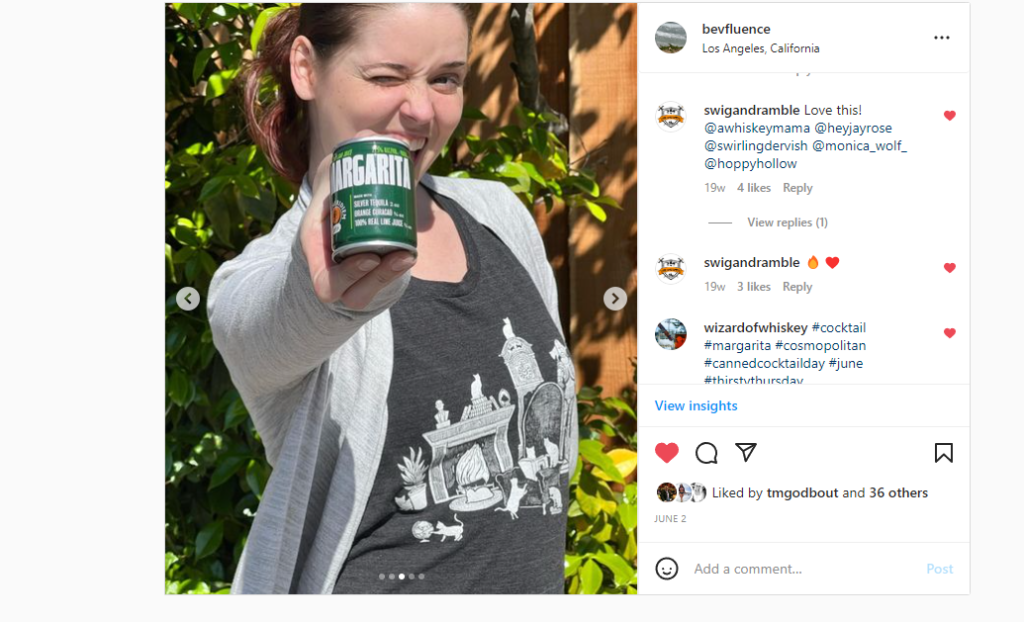
One of the most significant benefits of winning awards in spirits and wine competitions is its impact on brand reputation. Winning an award can help establish a brand as a leader in the industry and provide a sense of legitimacy and credibility to the brand. This can be particularly valuable for smaller brands looking to establish themselves in a crowded market. The marketing aspect of the award can help with brand building; often, competitions provide tasting notes, stickers, or medals you can purchase to showcase your wins.
In addition to building brand reputation, competitions and awards can help establish relationships between brands and industry experts. Winning an award can provide brands with opportunities to connect with judges and other industry professionals, leading to increased exposure and opportunities for collaboration. This is often the case but rarely translates into direct consumer sales.
Criticisms and Controversies Surrounding Spirit and Wine Competitions
While competitions can be valuable for brands, they are not without its criticisms, faults, and controversies. One of the most significant criticisms is that competition can be expensive to enter, which can be a barrier for smaller brands. Additionally, some critics have argued that competitions are only sometimes objective, as judges may have personal biases or preferences that can influence their evaluations.
Another criticism of competitions is that they may need to reflect consumer preferences accurately. Competition judges are typically industry experts who understand wine and spirits but may not necessarily represent the average consumer. As a result, products that perform well in competitions may only sometimes perform well in the market.
Wait, Doesn’t BevFluence® Have a Competition?
Nope, we have a way of life.
BevFluence® offers services that can help your brand achieve unprecedented sales growth. By partnering with top influencers in the industry, they can create engaging content that showcases your brand and products in a way that resonates with their audience. The Best of BevFluence® will increase brand awareness, new customers, and sales growth.
How?
All products will be highlighted at the end of the year Best of BevFluence® 2024 awards and compilation. Entries from a registered product will get:
(1) Tasted and evaluated by a world-renowned panel of experts, the influencer community, and consumers.
(2) Shared with content creators for the influencer marketing campaign, which follows our strategic publishing guidelines.
(3) Experienced at unique location blind tastings and influencer community outreach events, including our famous Little Libations Bartender Lab and consumer sensory panels, which involve recruiting a group of consumers to evaluate products based on their sensory experiences.
Conclusion: Do Awards Really Matter?
So, do awards matter in the world of wine and spirits? The answer is it depends. While winning an award can be a valuable achievement for a brand, the impact of awards on consumer perception can sometimes be an issue. Awards and medals may influence consumers to consider a product rather than necessarily purchase it. Other factors like price and availability may be more important in buying decisions.
Despite the uncertainties surrounding the impact of awards, it is clear that competitions and awards will continue to play an essential role in the wine and spirits industry. Brands that can win prizes and build their reputation through competitions will be well-positioned to succeed in a crowded and competitive market. However, brands must consider alternative approaches to evaluating and promoting their products to stay ahead of the curve and meet the changing consumer preferences. This was not written to hide that we have a competition or encourage you to register for ours instead of other competitions, but rather to provide an overview of why competitions can be essential tools for brands to learn, improve, market, and grow.

